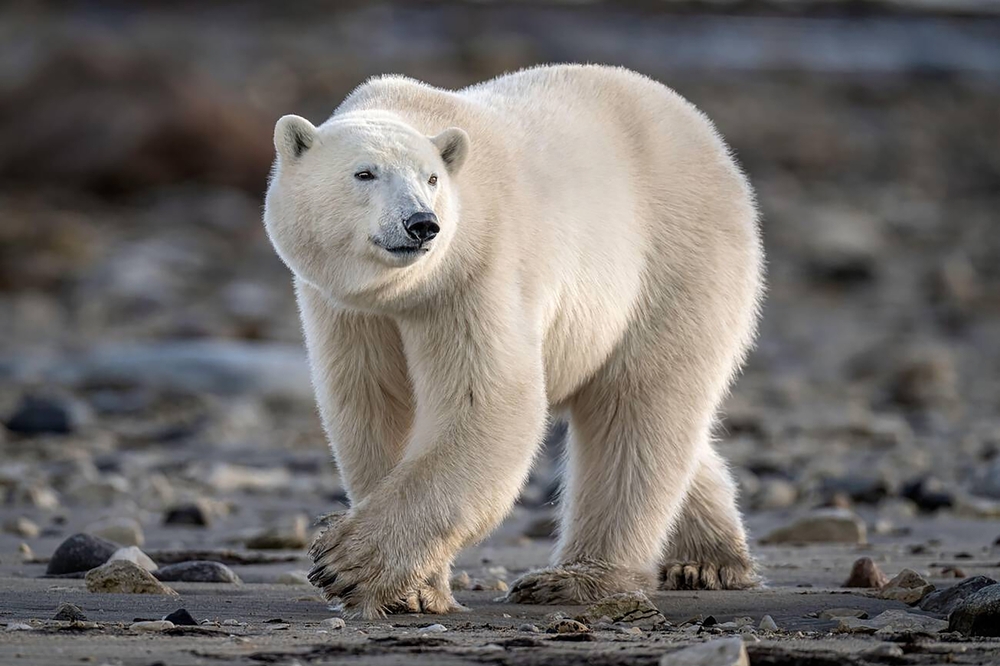
The recent Guardian story about WWF facilitating the trade in Polar Bear skins – click here – is in many ways, not news. It’s not news because I can’t see anything new in it. The fact that WWF has supported trophy hunting of several species whilst arguing for their conservation, and using images of them in its fundraising, is in the public domain, has been manifest for years and so is not news.

Obviously, it is an arguable position (commercial exploitation could lead to wise management of the species – ask an Icelandic cod for a favourable view and a North Sea Herring for a different historical view) but milking a species for all it’s worth to spend the money on WWF’s wide range of work whilst supporting some killing of the very same cuddly species is a difficult position to hold.
All organisations have the ‘Mind the Gap!’ issue – there is usually a gap between what you are told in fundraising ‘literature’ and what the money is spent on. How many fundraising campaigns have you been sent which ask for your money to clean the toilets at the organisation’s HQ, to pay the CEO or to top up the pension scheme? None – but all those things cost money and are necessities.
WWF has weathered scandals before. Around this time last year WWF featured in stories about whether it shelved a report about pollution of the River Wye (it seemed to me that it had – click here) and whether that was because its corporate funder Tesco leant on it (it seemed to me entirely possible). In 2021 WWF apologised (probably very genuinely) for the actions of poaching guards it funded in Africa who allegedly tortured and killed people – click here.
WWF is a business-facing organisation compared with just about any other wildlife conservation organisation. It raises about a fifth of its income through corporate sponsorship and income and that comes in large chunks – not tenners from the local greengrocers. Arguably it fills an important niche – influencing big business to be greener instead of buying land or simply concentrating on government advocacy. That is an argument that I understand but don’t accept. I don’t accept it because I haven’t seen enough evidence that it actually works. I am not a supporter of WWF and as a conservation investor I would not invest in WWF today (see Reflections p184).
WWF, the World Wide Fund for Nature has come a long way from its origins as WWF the World Wildlife Fund where it was originally to act as a collecting body which dished out money to good causes across the world – click here. WWF-UK feels like a franchise of a global corporation.
 To see a purer form of organisational funding you could look at Wild Justice, which I jointly founded over six years ago and from which I am stepping down in the not too distant future. Wild Justice is funded by public donations – no sponsorship, no merchandise, no membership and not even any direct debits, just donations. And Wild Justice produces a newsletter which is sent out when Wild Justice has news which is free to all, but you have to subscribe to it. To subscribe to the newsletter – click here – and to donate – click here.
To see a purer form of organisational funding you could look at Wild Justice, which I jointly founded over six years ago and from which I am stepping down in the not too distant future. Wild Justice is funded by public donations – no sponsorship, no merchandise, no membership and not even any direct debits, just donations. And Wild Justice produces a newsletter which is sent out when Wild Justice has news which is free to all, but you have to subscribe to it. To subscribe to the newsletter – click here – and to donate – click here.
 At the last RSPB AGM, two trustees with WWF backgrounds were elected – I voted against both of them. RSPB now has quite a large chunk of WWF past-baggage on its Council – click here. Will this make the RSPB more business-like, more business-friendly or more prone to WWF-style criticism?
At the last RSPB AGM, two trustees with WWF backgrounds were elected – I voted against both of them. RSPB now has quite a large chunk of WWF past-baggage on its Council – click here. Will this make the RSPB more business-like, more business-friendly or more prone to WWF-style criticism?
I don’t support trophy hunting in Africa but I can at least understand the arguments made in support of it as contributing to conservation; the high prices paid by hunters to bag their lion/elephant/buffalo pay for land to be set aside and managed for wildlife that might otherwise be taken over for ranching and most of the wildlife eradicated then from it. That at least has a logic to it that works in principal whether or not it works in practice and whether or not one considers that justifies the sacrifice of the trophy animals.
I struggle to understand, though, what the conservation argument could be in favour of allowing polar bears to be shot for their furs. If the hunters don’t shoot the bears what are they going to do instead that would be more damaging to arctic wildlife? It’s not as though communities getting income from pelts will have any bearing on the rate of melting of sea ice or whether or not Exxon et al will choose to explore the high arctic for more oil. I must be missing something but what?